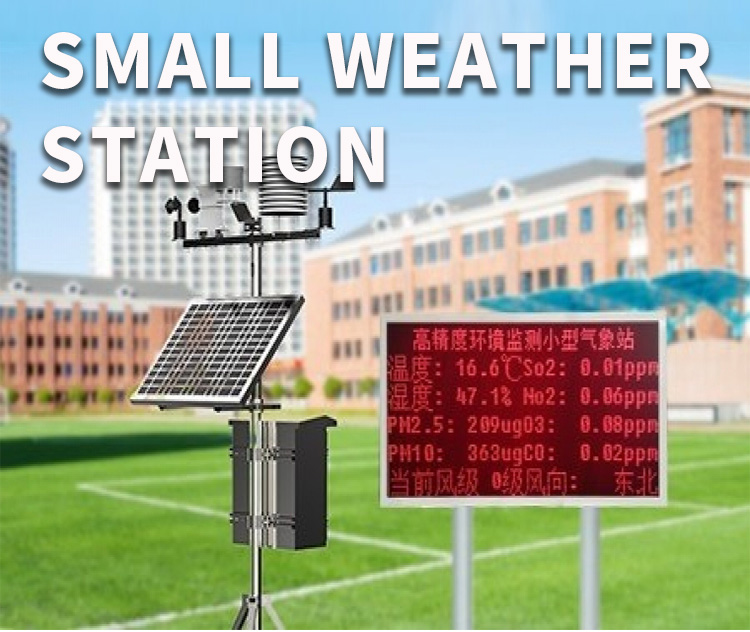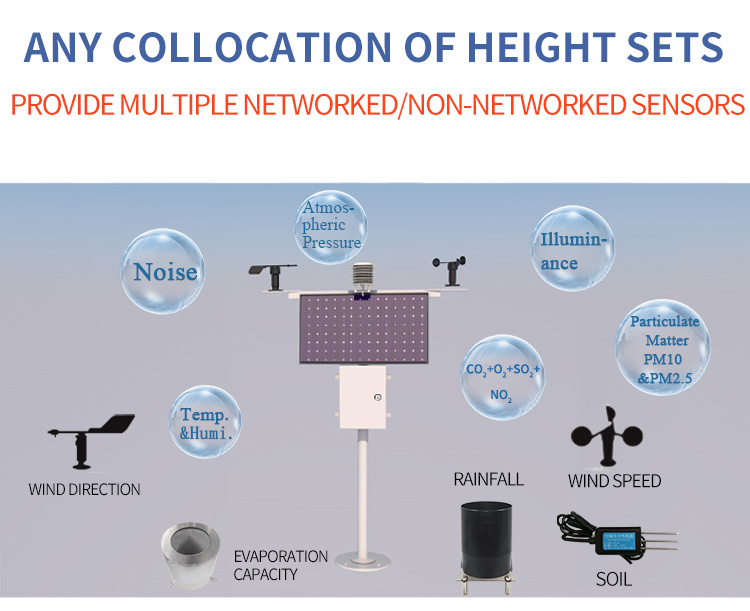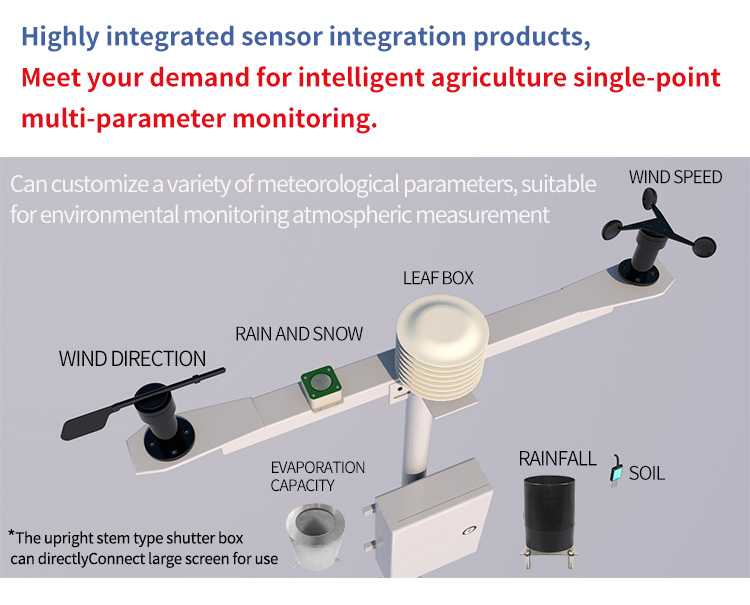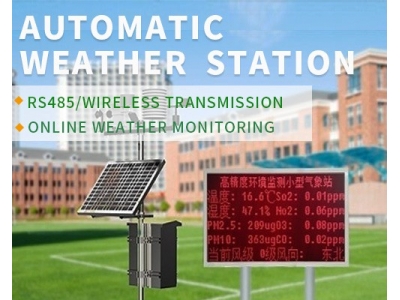Automated weather stations are not just a toy for weather bloggers and enthusiasts. In fact, automatic weather stations are central to many key functions of organizations large and small. But what exactly are automatic weather stations (AWS)? How do they work?
What is an automatic weather station?
First, we must answer: "What is a weather station?"
A weather station is an integrated system of components that automatically measure, record, and sometimes transmit weather data.
An automatic weather station is an automatic version of a traditional weather station. They can be a single site or part of a weather network. Automatic weather stations are the world standard for climate and boundary layer meteorology.

The most commonly reported surface weather observations from these stations are as follows:
1: Temperature
2. Wind Speed
3: Wind direction
4: Precipitation
5: Humidity
6. Solar radiation
7. Atmospheric pressure
8. Visibility
This isn’t a complete list of measurements, but these are some of the most common. Depending on the weather station, they can also measure things like cloud height. It all depends on a station’s components.

How an Automated Weather Station Works
Now that you know what an automatic weather station is, you’re ready to learn how it works.
At the most basic level, an automatic weather station works by measuring atmospheric conditions and transmitting them to a network, forecaster, or display.
They use special instruments to measure the surface weather observations we mentioned above. Some parts of a weather station include a thermometer to measure temperature and a barometer to measure atmospheric pressure. We list out all the different parts and what they do in the weather sensor section below, so keep reading!
Depending on the provider and model, there are several components that make up a station. Each component enables the weather station to measure and transmit different atmospheric data. Some common equipment typical for automatic weather stations include:
1. Weather Sensor
Although “weather sensor” sounds pretty broad, most weather sensors just measure wind speed and direction.
The part of the weather instrument that measures wind speed is called the anemometer. The part that measures wind direction is the wind vane.
Our weather stations use a vane style anemometer, so basically, it’s one instrument that measures both.
Wind speed and direction is an important part of any weather station because these data points help us understand the direction weather systems are moving and how soon they will reach a location.
2. Lightning Sensor
The next piece of an automatic weather station is a lightning sensor.
While lightning sensors are optional, any comprehensive weather station includes one. This is because lightning sensors are a key safety tool. Make sure your automated weather station has a total lightning sensor, so you don’t miss a strike.
3. Sensor Shelter
Another weather sensor component is the sensor shelter. While this might just sound like a protection for automated weather stations, it’s actually one of the most instrument-heavy pieces.

4. Rain Gauge
Red raindrop icon on a grey circle backgroundThe next important and easy-to-understand piece of any automatic weather sensor is a rain gauge. Rain gauges measure the liquid-equivalent precipitation. A rain gauge looks like a bucket or wide, vertical cylinder.
5. Data-Logger/Network Appliance
Two pieces of automatic weather stations that work hand-in-hand are data-loggers and network appliances. These systems work together in an automated step-by-step process.
6. Weather Display
Almost all weather stations have some display. Even personal stations that weather enthusiasts have at their homes often have a digital display somewhere.








